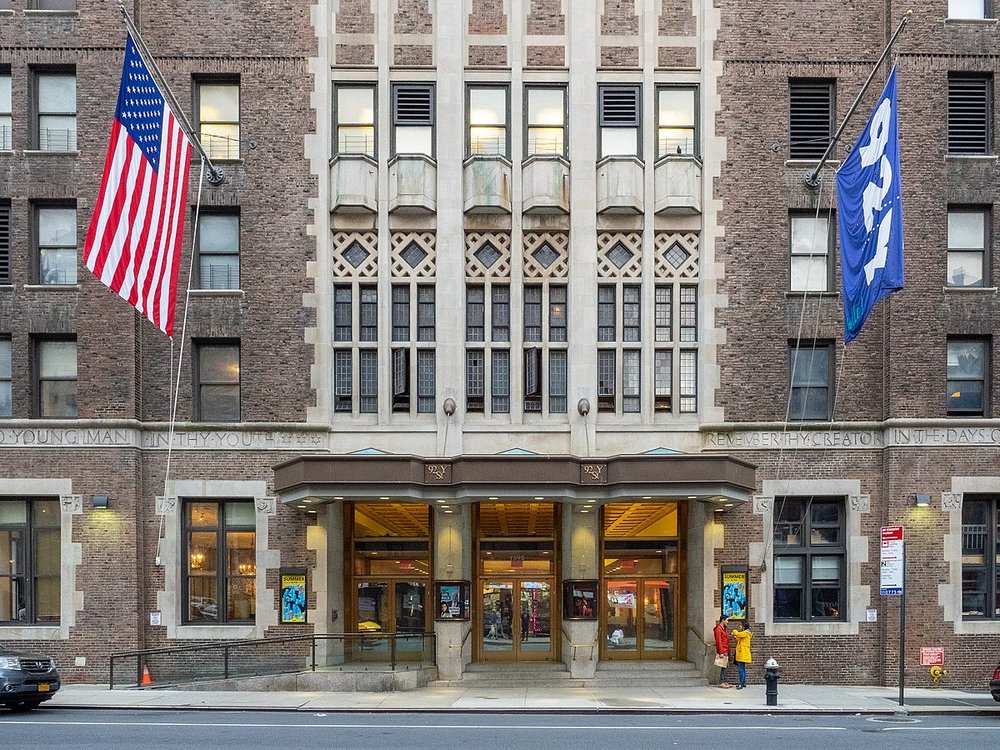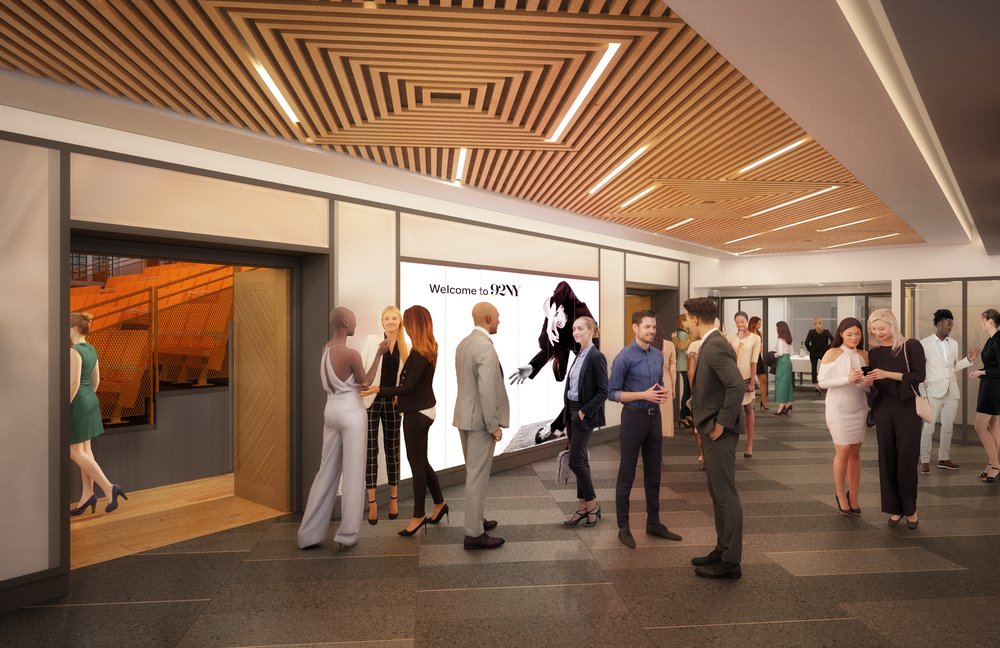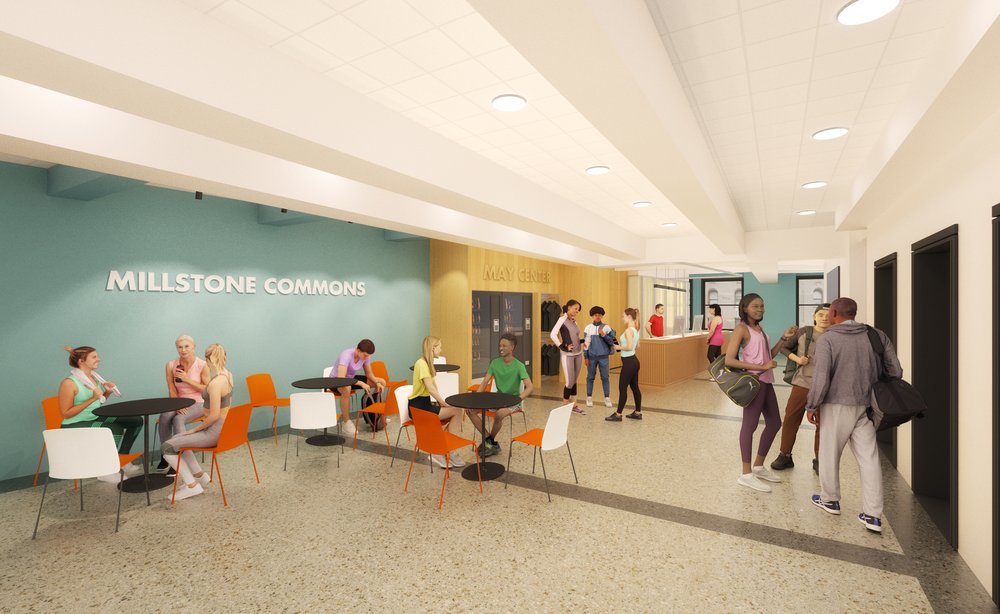The 92nd Street Y rebrands as 92NY as part of $200M redevelopment
May 10, 2022, 7:02 a.m.
Starting this week, “The 92nd Street Y” is officially being rechristened as “The 92nd Street Y, New York” — or 92NY, for short.

Most of the time when you start a new job, there's an understanding that you will have a little time to get used to the new position. Maybe a few weeks, or if you're lucky, a few months to ease into the place and get the lay of the land. But it wasn't so for Seth Pinsky, who took over as CEO of The 92nd Street Y in the ill-fated month of January 2020.
"I had about a month and a half where I felt like it was gonna be a very easy job, where the place basically just ran itself, and then the world collapsed around us," Pinsky, former head of the New York City Economic Development Corporation, said.
What followed was two unbelievably challenging years in which the 148-year-old, non-profit institution, located at the corner of 92nd Street and Lexington Avenue on the Upper East Side, had to rethink all of its strategies about its programming, its audience, and how to best serve both.
Now, as the city eases out of the morass of pandemic restrictions and cultural institutions have started to plan ahead for the future once again, The 92nd Street Y has embraced what they call a "post-COVID transformation," which includes a new rebranding for a global audience, an investment in a new digital learning platform, and a $200 million renovation of its physical home.
Starting this week, “The 92nd Street Y” is officially being rechristened as “The 92nd Street Y, New York” — or 92NY, for short.

The idea behind this change stems from the organization's decision back in March 2020 to not close down like many other cultural venues.
"For us, [this] meant completely pivoting 180 degrees, and putting everything that we did online, which we basically did over the course of a weekend," Pinsky said.
Prior to the pandemic, they had about 300,000 people visiting their Upper East Side home annually. But embracing digital technologies they had never really experimented with before opened up a whole new audience for them: they ended up creating almost 2,000 original programs over the last two years, and attracting about six million views from across America and over 200 other countries.
"We realized, in relatively short order, that we weren't just a New York institution anymore — we were a global institution," Pinsky said.
Now that they are serving a global audience, they felt it was imperative to reintroduce themselves to the world while also cementing their relationship with the city. Because while New Yorkers have long accepted 92NY's eclectic offerings — you can see Larry David get interviewed one night, attend a lecture on growing up Asian in America the next night, and follow it up with a dance performance the night after that — as a classic, distinctly NYC institution unto itself, new online audiences were more confused, according to Pinsky.
So, 92NY will also unveil a new logo, designed by Michael Beirut of Pentagram (which created of the former 92Y logo), along with a new tagline: "Where New York Meets The World."

To Pinsky, going from 92Y to 92NY is them doubling down on their core identity.
"We think that it's an important part of explaining who we are, because an institution like the 92nd Street Y really couldn't exist anywhere other than New York," he said. "And it's our belief that New York wouldn't fully be New York without institutions like [ours]. And then we also believe that the brand that is New York is a sought after and highly respected brand around the world."
They have also launched Roundtable, an online adult learning platform, to bring together world-renowned educators with lifelong learners, thanks to funding from Bloomberg Philanthropies’ Digital Accelerator Program. They hope it will help form partnerships with other major cultural institutions worldwide.
Pinsky found that other arts organizations also wanted to expand their digital offerings, but haven't been able to build out their digital infrastructure.
"The idea is that we could use this platform and plug in content from other cultural and educational institutions, aggregate that content, distribute to an even wider audience," he said.

And lastly, the $200 million plan, which will be funded by a capital campaign, calls for a top-to-bottom renovation of their entire campus, which will take several years to roll out. It will ideally be done in small pieces so they don't have to close their doors entirely to the public along the way.
The initial phase will start with a $24 million full renovation of 92NY’s second public performance space, Buttenweiser Hall; the creation of a new, state-of-the-art dance center; and significantly-improved facilities in 92NY’s May Center gym.
Despite the uncertainty and pain of the last couple years, Pinsky says the organization views this as an opportunity to bring itself into the future.
"I'd like to believe that this kind of re-imagination of an institution like the 92nd Street Y is something that's happening all across New York, which will allow all of us to emerge from this pandemic in a better place than we were before," said Pinsky. "And so what we're going through makes me very hopeful for our own future, but it also makes me very hopeful about the future of New York."